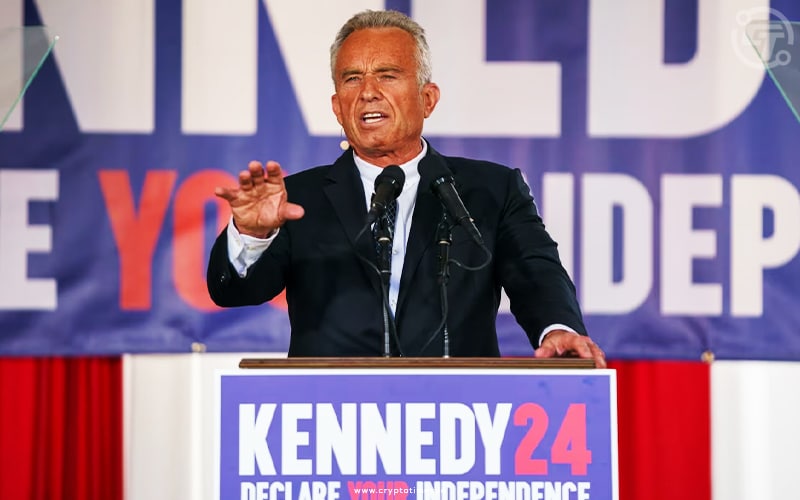In U.S. politics, two presidential candidates have firmly opposed the introduction of central bank digital currencies (CBDCs). Robert F. Kennedy Jr. and former President Donald Trump have opposed the United States embracing this digital currency.
Robert F. Kennedy Jr., seeking a potential presidential bid, stands firmly against CBDCs joining Trump on the matter.
He emphasized his dedication to financial democracy in the digital world, stating, “As president, I will end the efforts to move toward a CBDC.” These remarks were part of a discussion with Dr. Joseph Mercola regarding the future of financial freedom.
Kennedy Jr. is considering running as an independent candidate to secure his place on ballots nationwide. He also showed willingness to accept a Libertarian nomination during a CNN program hosted by Michael Smerconish.
Recently, former President Donald Trump promised to prevent the federal government from exercising control over Americans’ finances by implementing a CBDC.
While both presidential hopefuls oppose CBDCs, it should be noted that Kennedy Jr. is not being considered for the vice president position within the Trump campaign, as clarified by the campaign’s senior adviser, Chris LaCivita.
Kennedy Jr. promised to protect cryptocurrencies like Bitcoin, ensuring individuals can maintain personal wallets and secure transactions.
He raised concerns about CBDCs serving as potential government surveillance and control tools, stating, “While cash transactions are anonymous, a CBDC will allow the government to surveil all our private financial affairs.”
These declarations by two prominent presidential candidates reflect the ongoing debate surrounding CBDCs and their potential impact on financial privacy and autonomy in the United States.






